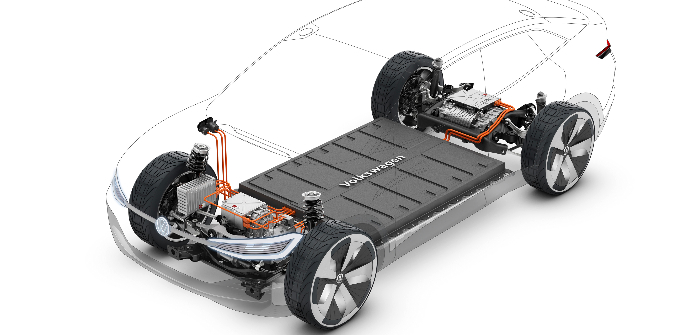As auto makers continue to target automotive sustainability, the German OEM has taken the lead and pledged €20bn (US$23.9bn) toward the development of 80 new EVs by 2025.
Back in June 2016, VW outlined its ambition to become the global number one in e-mobility by 2025, and this latest move has further consolidated this target.
With the company claiming that the entire product portfolio will be electrified before 2030, this move means that VW is the first OEM to have put a timeline on the transition to an entirely electric fleet.
In the announcement at the Frankfurt motor show this morning, the company claimed the vehicle line-up will include up to 50 purely battery-powered cars and 30 plug-in hybrids.
To make the move possible VW will require up to 150 gigawatt hours of battery capacity annually, equivalent to at least four gigafactories for battery cells. To ensure this, the company has put a €50bn (US$60bn) procurement out to tender.
Matthias Muller, chairman of the board at VW, spoke to the media: “We have got the message and we will deliver. This is not some vague declaration of intent. It is a strong self-commitment which, from today, becomes a yardstick by which we measure our performance.”
Despite the announcement of accelerated electrification, the conventional drivetrain hasn’t seen the end of the road yet. Muller said, “For the time being, we will be offering the entire powertrain spectrum to enable sustainable and affordable mass mobility.”
In addition to VW laying out its philosophy for the future, the German auto maker also gave a glimpse into the future, with a first look at the ID Crozz, zero emission all-electric SUV concept.
With production of the ID Buzz having been recently penciled in for a 2020 release, VW’s new four-door coupe SUV crossover has taken the next step toward following suit.
Fitted with an electric motor on each axle, the EV concept boasts 225kW system power, meaning a top speed of 180km/h, while providing a 500km driving range on a single charge. Even when the high-performance battery dies, the OEM claims a 30-minute charge time for 80% capacity using the fast charge system.


